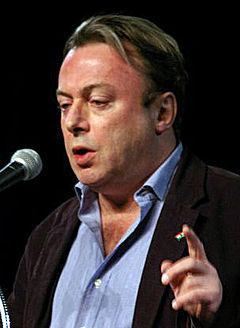HE LEFT US TOO SOON TO WEAR THE BOTTOMS OF HIS TROUSERS ROLLED — in memory of Christopher Hitchens
The January edition of “Vanity Fair” contains “The Trial of the Will” which is probably the last essay Christopher Hitchens wrote before he died. In it, he rejected Friedrich Nietzsche’s notion that whatever fails to kill us makes us stronger. To the contrary, Hitches argued that whatever doesn’t kill us is likely to leave us weaker and more vulnerable to decline. He spoke from his experience, having found himself horribly weakened by treatments for his esophageal cancer.

(Christopher Hitchens: 1949 — 2011)
Mine are grim thoughts upon which to greet the coming New Year, yet all beginnings have endings. As Hitchens and others have observed, we mortals are either engaged in the act of being born or of dying. That is our fate. So the author is right to wonder what value makes life worth the struggle. I’ve asked the question myself, many times, acknowledging the irony of modern medicine: that it can prolong our lives and so extend our misery that our only regret is that we didn’t die sooner.
And yet Hitchens hung on, enduring pain that was immune to palliatives. What he required of life at the last was not to feel his personality dissolving or to lose the use of his hands those “transmission belts” that “connected me to writing and thinking” (Vanity Fair, “The Trial of the Will”, 1/2012). As long as he could do both, write and think, life was worth living and he was lucky enough to retain his powers until he died.
My thoughts revert to the lines in T. S. Elliot’s J. Alfred Profrock, a character who looks back on his existence and wonders if a life that has failed to move another soul has purpose.
“And would it have been worth it after all ….
If one, settling a pillow or throwing off a shawl,
And turning toward the window, should say:
‘That’s not it at all,
That is not what I meant, at all.’ “
If touching the minds of others is the measure of a human value, then Christopher Hitchens’ life was a rich one. It would have been better had he died later rather than sooner.